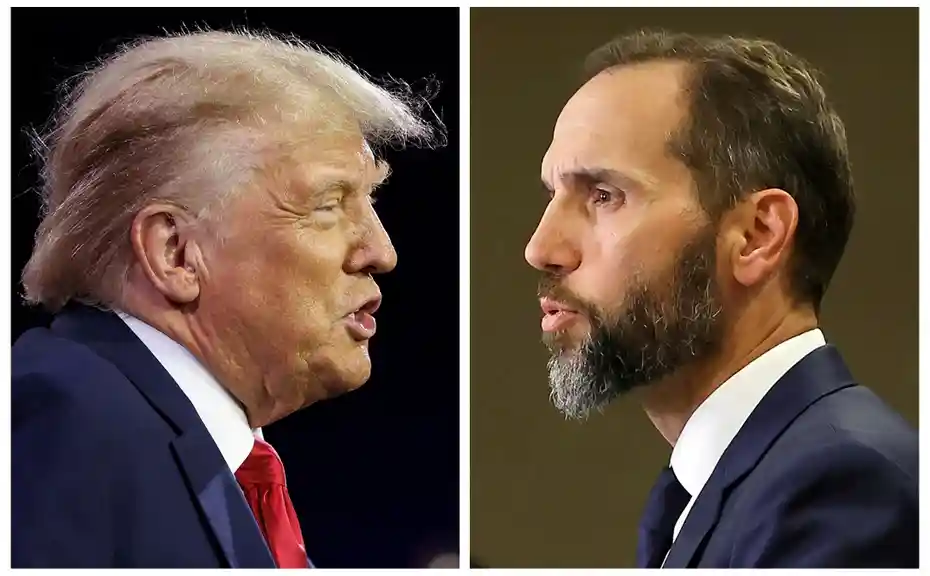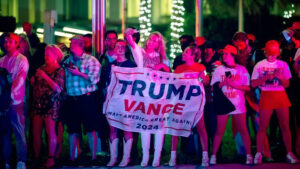
In a recent rally, former President Donald Trump made headlines by stating he would dismiss Special Counsel Jack Smith “within two seconds” if he were to reclaim the presidency in 2024. This declaration has reignited discussions surrounding Trump’s ongoing legal battles and the broader implications for the American justice system.
The Context of Trump’s Comments
Jack Smith is leading several high-profile investigations into Trump, notably regarding his handling of classified documents and his alleged involvement in the January 6 Capitol riots. Smith, who was appointed by Attorney General Merrick Garland, has garnered a reputation for his aggressive approach to prosecuting political figures. Trump’s remarks come at a time when he is facing multiple indictments and mounting legal pressure.
During his rally, Trump accused Smith of being politically motivated, claiming that the Special Counsel’s investigations are part of a larger conspiracy to undermine his candidacy. “It’s all a witch hunt,” Trump said, echoing sentiments he has expressed since the investigations began. His followers erupted in applause, demonstrating that this narrative resonates deeply within his base.
Political Implications of the Statement
Trump’s willingness to openly discuss firing Smith raises significant questions about the integrity of the judicial process in America. Critics argue that such a statement undermines the independence of the judiciary and the role of Special Counsels, who are meant to operate without political influence.
Political analysts suggest that Trump’s comments reflect a growing trend among politicians to challenge the legitimacy of the justice system when it does not align with their interests. This situation highlights the precarious balance between accountability and political maneuvering in contemporary American politics.
The Support and Criticism
Supporters of Trump see his comments as a necessary stance against what they perceive as a biased legal system. Many believe that the investigations are a form of political persecution, aimed at silencing a popular leader. “Trump is standing up for himself and for us,” said one supporter at the rally. This sentiment underscores the deep divisions in American political culture, where legal actions against politicians are often viewed through a partisan lens.
Conversely, critics argue that such remarks are dangerous. Legal experts emphasize that the independence of the judiciary is a cornerstone of democracy. By promising to fire a Special Counsel, Trump is sending a message that he would prioritize his personal interests over the rule of law. This stance raises concerns about how a Trump presidency could affect future legal proceedings and the treatment of political adversaries.
Historical Precedents
Historically, attempts by presidents to influence or dismiss investigations have raised serious ethical questions. The most notable example is the Watergate scandal, where President Richard Nixon famously fired special prosecutor Archibald Cox, leading to a political firestorm and Nixon’s eventual resignation. This historical context serves as a reminder of the potential consequences of such actions.
Trump’s situation is further complicated by the fact that he is currently a candidate facing multiple legal challenges. His statements may be viewed as an attempt to rally support among voters who feel disenfranchised by the legal system, but they also risk alienating moderate voters who value stability and respect for legal norms.
The Media’s Role
The media has played a crucial role in shaping the narrative surrounding Trump’s legal battles and his comments on Jack Smith. Coverage ranges from sensationalist headlines to more measured analyses, highlighting the polarization in media reporting. Some outlets portray Trump as a victim of a politicized justice system, while others emphasize the serious nature of the allegations against him.
This media landscape complicates public perception, as individuals often consume information that reinforces their existing beliefs. The challenge lies in navigating this fractured media environment to arrive at a balanced understanding of the implications of Trump’s comments.
Conclusion
Donald Trump’s declaration that he would fire Jack Smith within two seconds if elected president is not just a provocative soundbite; it is a reflection of the ongoing conflict between politics and the legal system in the United States. As Trump continues to face legal challenges, his comments will undoubtedly influence both his supporters and detractors. The question remains: how will this rhetoric impact the future of American democracy and the integrity of its institutions?
As the 2024 election approaches, the intersection of law and politics will be under intense scrutiny. The stakes are high, and Trump’s statements serve as a reminder of the potential ramifications when political figures openly challenge the foundations of the justice system. Whether this will galvanize his base or alienate moderate voters remains to be seen, but one thing is clear: the implications of his words will echo far beyond the rally stage.






